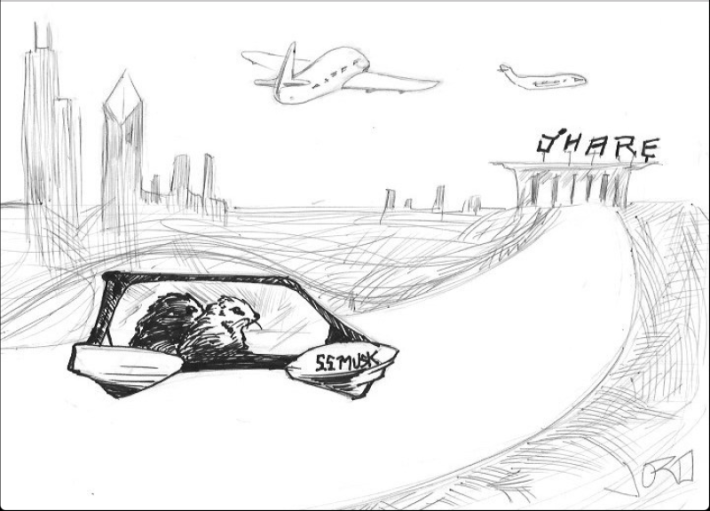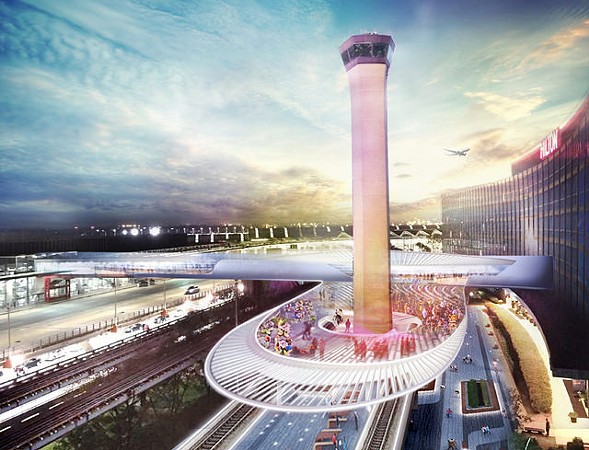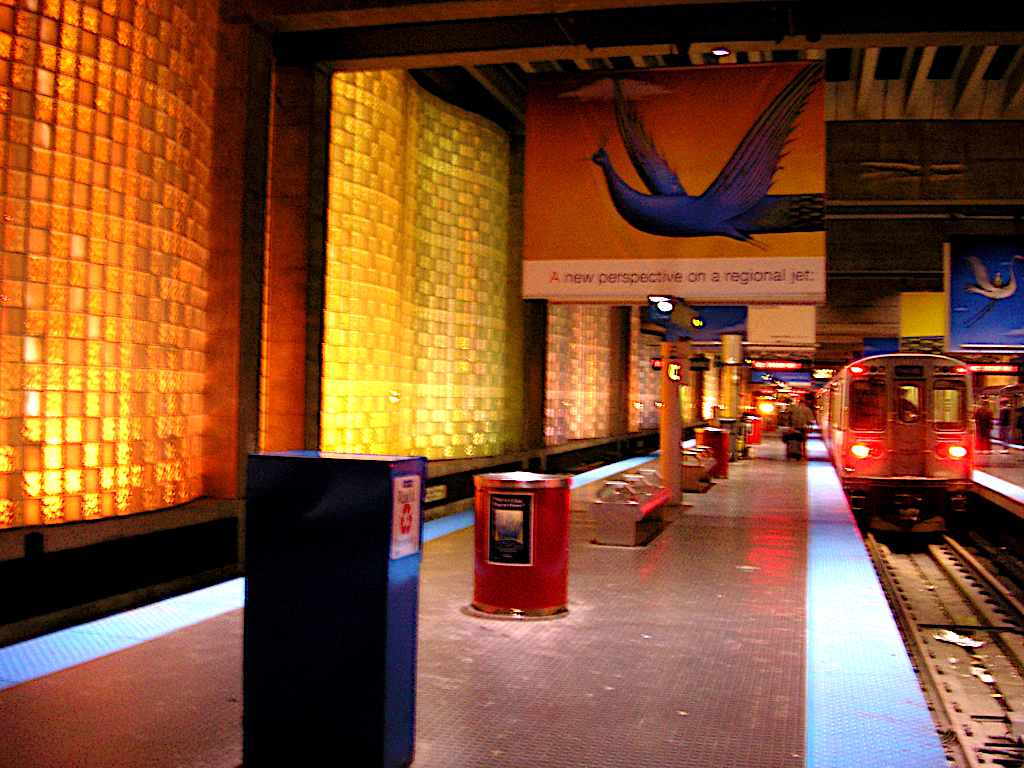Mayor Rahm Emanuel’s highly controversial plan for creating a premium-priced express train service to carry business people and other well-funded travelers between downtown Chicago and O’Hare airport took a step towards becoming a reality today. The city, in coordination with the Chicago Infrastructure Trust issued a request for qualifications to design, build, finance, operate, and maintain the rail service through a public-private partnership with the city. The goal is to shorten the airport trip from the current 40 to 45 minutes via the Blue Line to 20 minutes or less.
“Express service to and from O'Hare will give Chicagoans and visitors to our great city more options, faster travel times, and build on Chicago’s competitive advantage as a global hub of tourism, transportation and trade," Emanuel said in a statement. "Strengthening connections between the economic engines of downtown Chicago and O’Hare airport, at no cost to taxpayers, will build on Chicago’s legacy of innovation and pay dividends for generations to come.”
According to the city, the release of the RFQ follows analysis from a working group formed last year to determine the practicality of the express train project. The working group studied demand for ridership, potential terminal, and possible routes and alignments. The RFQ will be issued to determine private sector interest in building and running the express service
The document states that the rail service should include a downtown station, an airport station and a maintenance facility. The city and the infrastructure trust will consider potential elevated or below-ground corridors. (In July tech guru Elon Musk offered the services of his new excavation business the Boring Company, proposing to whisk travelers to O’Hare in tunnels via largely hypothetical “electric sled” technology.)

In addition to cutting travel time to the airport by than 50 percent compared to the ‘L’, the O’Hare Express RFQ calls for service at least every 15 minutes during most of the day – the Blue Line runs every four to ten minutes. The cost of the express fare is supposed to be cheaper than a cab ride to the airport from the Loop, which the city estimates to be around $60, or a ride-share trip, estimated at roughly $40. Chicago aviation chief Ginger Evans has previously projected that an express ticket would cost between $25 and $35, compared to the current ‘L’ fare of $2.25 to O’Hare and $5 from it. “Any proposal must also address how potential conflicts or impacts on existing transportation systems and the environment would be avoided or minimized,” the city said in a statement.
The RFQ stipulates that the express service will be funded solely by project-specific revenues like fares or advertising, and financed entirely by the concessionaire. However, Evans has previously conceded that public funds will likely be used for building the stations.
The city and the infrastructure trust plan to choose one or more respondents that they consider most qualified to successfully respond to a subsequent request for proposals RFQ responses are due on January 24.
While deputy mayor Bob Rivkin, a former CTA and federal transportation official, recently told Crain’s Greg Hinz that he believes the project is doable, there’s reason to believe the express service could become a major boondoggle for the city. After all, Mayor Richard M. Daley spent some $250 million on a "superstation" underneath Block 37 in hopes of creating an airport, but that facility now sits empty. Evans has ruled out using that structure for the new service arguing it's "not a feasible terminus" because it would disrupt nearby CTA lines.

Last year urban planner Daniel Kay Hertz skewered Emanuel’s proposal in a Chicago magazine piece. He argued that the premium-priced service, costing dozens of dollars, won't even attract its target ridership of people with deep pockets or expense accounts. For example, Toronto's Union Pearson Express had dismal ridership until fares were slashed from about U.S. $20 to roughly $9.
Hertz also noted that the Blue Line is already a popular train route to O'Hare, and the current Your New Blue renovation project could shave up to five minutes off the trip from O'Hare to the Loop. Moreover, since the most likely corridor for the express service is Metra's North Central Service, which currently stops on the northeast side of the airport, the downtown express terminal is likely to be Union Station. When you factor in the additional waiting time for the express due to longer headways than the Blue Line, plus the cab or ride-share trip from Union Station to Michigan Avenue hotels, he argues, the expensive train wouldn't be much faster or more convenient than the cheap one.
The Active Transportation Alliance has previously argued that the O’Hare Express represents a distraction from the transportation needs of ordinary Chicagoans. “We should focus on connecting the spokes in our hub-and-spoke transit system to better serve neighborhoods outside the Loop," director Ron Burke told me last year. He added that extending existing rail lines and giving buses priority with dedicated lanes "would be more efficient investments that would provide greater benefits."
But whether you believe the O’Hare express will be another gem in Chicago’s transportation crown, or simply an expensive, little-used white elephant, it looks like the project has momentum.




